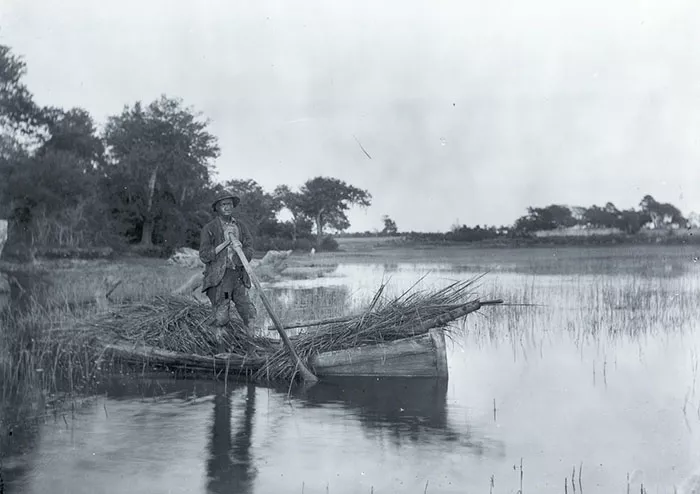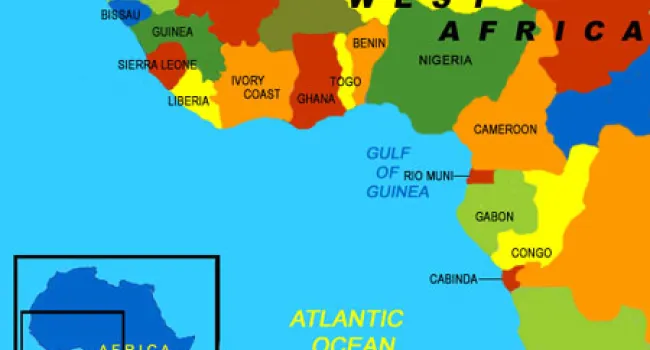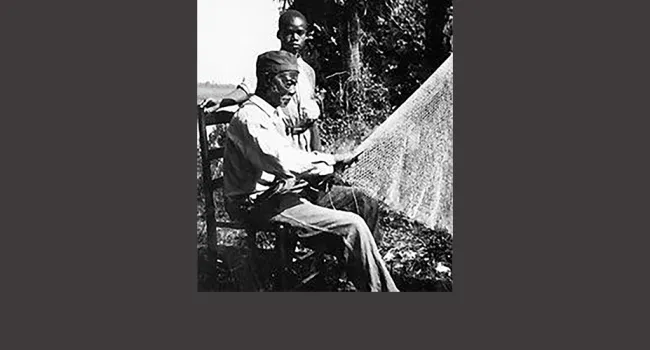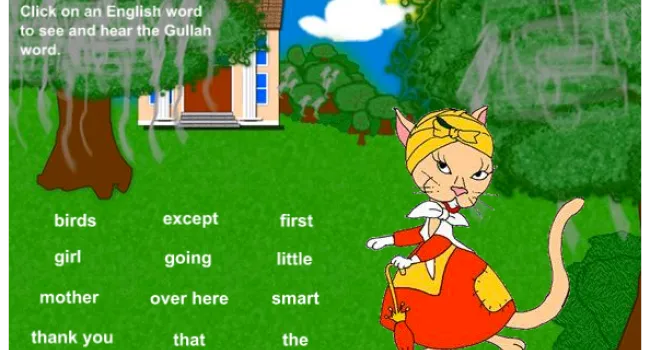
Gullah communities are located where enslaved Africans once lived and worked on Sea Island plantations that were owned by American colonists. Native Americans were also part of these communities. The unique blend of the West African culture, combined with European and Native American influences, resulted in the distinct culture that is known as Gullah.
After the Civil War ended in 1865, slaves were freed. Since most plantation owners were not able to produce crops without slave labor, some of the land was sold to plantation workers. Most of those who remained on the islands made a living by farming and fishing. They had little contact with the mainland because the only way to travel off the island was by boat. Given this geographic isolation, Native Islanders were able to maintain their folkways and language.
In the 1950s, bridges were built to connect some of the South Carolina and Georgia Sea Islands to the mainland. The bridges provided access to the new resorts that had been developed in the coastal area. Island communities became more modern with the arrival of outsiders and the introduction of new technologies, such as radio and television.
The development of the land and increased tourism caused the decline of farming and fishing. Many Native Islanders now work at the local resorts or in the coastal towns and cities. Although many feel that their traditions and language are endangered, the Gullah have survived change and held onto their past.
PICTURED ABOVE: One of St. Helena's inhabitants during the early part of the 20th century. From the Penn School Collection. Permission granted by Penn Center, Inc., St. Helena Island, SC.
en Espanol
Las comunidades Gullah están ubicadas donde los Africanos esclavizados vivieron y trabajaron en plantaciones de Isla del Mar que eran propiedades de colonos Estadounidenses. Los Indios Americanos también formaban parte de estas comunidades. La mezcla única de la cultura del África Occidental, combinada con influencias europeas y nativas americanas, dio lugar a una cultura distinta que se conoce como Gullah.
Después de que la Guerra Civil terminara en 1865, los esclavos fueron liberados. Dado que la mayoría de los propietarios de plantaciones no pudieron producir cultivos sin mano de obra esclava, alguna parte de la tierra fue vendida a trabajadores de plantaciones. La mayoría de los que permanecieron en las islas hicieron su vida trabajando en la agricultura y la pesca. Tenían poco contacto con el continente porque la única manera de viajar fuera de la isla era en barco. Dado este aislamiento geográfico, los nativos de las islas fueron capaces de mantener sus tradiciones folclóricas y su idioma.
En la década de 1950, se construyeron puentes para conectar algunas de las Islas del Mar de Georgia y Carolina del Sur con el continente. Los puentes brindaron acceso a los nuevos complejos que se habían desarrollado en la zona costera. Las comunidades insulares se hicieron más modernas con la llegada de personas ajenas a la isla y la introducción de nuevas tecnologías, como la radio y la televisión.
El desarrollo de la tierra y el aumento del turismo causaron la disminución de la agricultura y la pesca. Muchos nativos de las islas trabajan ahora en los centros turísticos locales o en las ciudades costeras. Aunque muchos sienten que sus tradiciones y su idioma están en peligro, Gullah ha sobrevivido al cambio y ha mantenido sus raíces del pasado.
IMAGEN ANTERIOR: Uno de los habitantes de Santa Elena durante la primera parte del siglo XX. De la Colección de la Escuela Penn. Permiso otorgado por Penn Center, Inc., St. Helena Island, SC.
Word Bank
slave (slave) n. - a person who is owned by someone else and works without pay.
Sea Islands (sea is.lands) - a group of islands off the coasts of South Carolina, Georgia and North Florida.
Native American (na.tive a.mer.i.can) n. - a descendant of any of the peoples who lived in North, Central or South America before European explorers and colonists arrived.
cultural heritage (her.i.tage) n. - things handed down from generation to generation, such as traditions and languages that have cultural importance.
Civil War (civ.il war) n. - the war in the United States between the Union and Confederacy that lasted from 1861 to 1865; also, any war within a country.
Native Islander (na.tive is.land.er) n. - one of the original inhabitants or lifelong residents of the Sea Islands.
folkway (folk.way) n. - a practice, custom or belief shared by the members of a group as part of their common culture.
tourism (tour.ism) n. - the business of providing services for tourists, including organizing their travel, hotels, entertainment, etc.
endangered (en.dan.gered) adj. - likely to be harmed, damaged or destroyed.
Standards
- 3-2 The student will demonstrate an understanding of the exploration and settlement of South Carolina.
- This indicator was written to promote inquiry into the unique development of ethnic, political, and religious identities in the New England, Mid-Atlantic, and Southern colonies.
- This indicator was developed to promote inquiry into how South Carolina developed as a result of the relationship among various ethnic, political, and religious groups.
- This indicator was written to promote inquiry into the role of mercantilism in the growth of agriculture, early industry, harbor development, shipping and trade, and slavery in the British colonies.
- 3.4.2.HS Investigate the economic and land use characteristics of places and regions around the world.
- 3.4.1.PR Investigate the cultural characteristics of places and regions around the world.
Resources
You need to be logged in to listen to view this content. Create an account now; it's quick, easy, and free!
Log In to View








